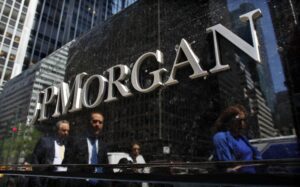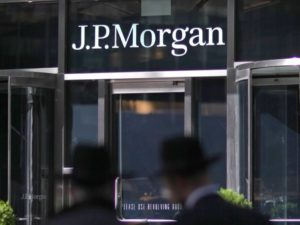
Oil prices could soar into the stratosphere and reach $380 per barrel in a worst-case scenario in which Russia cuts fuel supplies in response to Western sanctions, J.P. analysts predict. Morgan Chase & Co.
The Russian Federation can afford to cut production by 5 million barrels per day without causing excessive harm to the economy, Bloomberg quoted bank analysts as saying. Moscow may take such a measure due to various possible measures by the West, including imposing a ceiling on the price buyers pay for Russian oil.
At the same time, the consequences of such actions for the rest of the world will be catastrophic. A 3 million bpd production cut would push Brent oil prices up to $190 per barrel, while in a worst-case scenario, if production falls by 5 million bpd, prices will soar to $380 per barrel, experts say.
“The most obvious and likely risk associated with imposing a price cap is that Russia may decide not to participate in this scheme and instead retaliate by cutting exports,” the analysts wrote. “It is likely that the government may retaliate by cutting production to harm the West. The lack of supply in the world oil market is playing into the hands of Russia.”
September futures for Brent crude on the London ICE Futures exchange by 10:23 Moscow time are trading at around $111.8 per barrel, futures for WTI oil for August on the New York Mercantile Exchange (NYMEX) by this time are about $108.6 per barrel. barrel.

J.P. Morgan is committed to its forecast of 5.6% growth for Ukraine’s economy in 2021, despite continuing quarantine restrictions, the bank said in its April commentary.
The bank still believes that in 2021 growth will exceed 5%, mainly due to internal factors, but will also be supported by external demand. As the European and global economy recovers in the second half of 2021, Ukrainian exports should increase in volume and contribute to growth,” the analysts said.
They pointed to good performance in the fourth quarter of last year and strong growth in retail sales, confirming the view that consumption will be an important driver of growth this year as well.
J.P. Morgan said that a serious decline in investment and a reduction in inventories were the main negative factors in the decline in GDP by 4% last year, but this year the situation in these areas will improve. In particular, the analysts expect investments to rebound by almost 30% after falling by more than 24% last year and reaching pre-crisis levels. In their opinion, restocking will provide significant additional impetus to growth in 2021.
According to the bank’s forecast, vaccination will progress very slowly, more than half of the population will be vaccinated by about the middle of 2022; therefore, consumer spending will be mostly domestic.
J.P. Morgan pointed out a possible serious aggravation of the situation with COVID-19 or geopolitical events among the risks.
Commenting on cooperation with the IMF, the analysts maintain expectations that Ukraine will receive financing from the IMF in the third quarter, despite the slow implementation of the commitments. In their opinion, the IMF mission is likely to return in the second quarter of 2021 and among the main issues will be the discussion of the laws on the High Council of Justice, NABU and strengthening responsibility for electronic declarations introduced to the Rada, as well as the preservation of the NBU’s independence. J.P. Morgan also said that U.S. officials named the resumption of cooperation with the IMF and IFIs, as well as reforms in the justice sector, among the conditions of financial support for Ukraine.
Speaking of inflation, the analysts expect it to rise to about 9% by the third quarter of 2021 and increase the key policy rate by the National Bank by 50 basis points – to 7% at the next meeting. In their opinion, further this year the key policy rate will reach 7.5%, and next year – 9.5%. J.P. Morgan believes that 2022 will be more challenging for the NBU, as rather high real interest rates will be required to bring inflation down to 5%, especially given the expected current account deficit compared to a large surplus in 2020.
According to the document, a high GDP deflator (9.8% last year) implies an increase in budget receipts in 2021, in connection with which the analysts predict the budget deficit this year is slightly higher than 4% of GDP compared to 5.5% of GDP in the official forecast.

JPMorgan Chase & Co. directly lent around $350 million to the government of Ukraine on March 12, 2019, two weeks before the first round of the presidential election in the cash-strapped country, WSJ has reported, referring to people familiar with the deal.
WSJ said that the bank, declared the only organizer of the additional issue of 10-year loan participation notes (LPNs) of Ukraine, bought them itself, which is not a common practice.
The deal could deliver millions of dollars in gains for JPMorgan, which bought the bonds at a discount.
WSJ said that in the past weeks Ukrainian government officials met with the bond management funds in Miami and New York to unofficially discuss the issue of new LPNs, although investors called to postpone the sale of new LPNs after the election.
In this situation, JPMorgan offered Ukraine to add $350 million in eurobonds maturing in 2028 and sell them privately to the bank, people familiar with the deal told the publication. According to their data, the bank bought bonds at around 98.88 cents on the dollar and has started selling them to bond funds at around 100.50 cents on the dollar. If JPMorgan sells all the bonds at that price, it would make a profit of some $5.7 million on the deal, WSJ said.
According to WSJ, Wall Street firms from time to time made such transactions through the so-called proprietary trading desks before the 2008 financial crisis, but rarely did this later, since the new rules require them to be significantly redundant in such transactions.